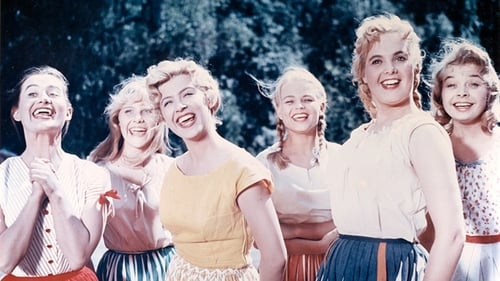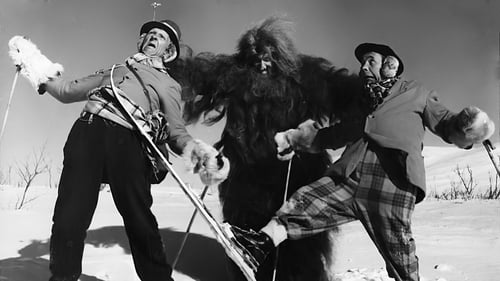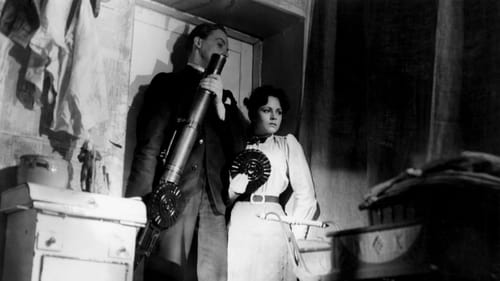Jalmari Parikka
Рождение : 1891-10-16, Sortavala, Finland
Смерть : 1959-03-27

Master of Nikkilä
Хозяйка Нискавуори крепко держится за свою землю, ей она отдала свою молодость, свое счастье. Этого же требует она и от сына Арнэ и его жены Марти. Но Арнэ полюбил учительницу Илону и вместе с ней уходит искать новую жизнь.

Iisakki Hirmu
Кинокомедия о том, как молодой и жизнерадостный Пентти добивается любви красавицы Хилкки, разрушает все козни богача Мюрккю, который хочет опозорить и выгнать Пентти из села.

(uncredited)

Martti
Set in early 16th century Finland, a knight Olavi Gideoninpoika meets Mirjam Raakelintytär and falls in love. Mirjami hides in a monastery disguised as a choir boy, but is revealed by a monk Rasmus, who also desires her, and is put on trial.

(uncredited)

Evakko
Evakko is a portrayal of Soviet-Finnish winter war of 1939/40 and the associated evacuations in different parts of the country. It tells the story of a Karelian family along with their whole village who were forced to leave their homes because of the war. The film has a surprisingly perky tone for the subject matter.

Lampinen's husband
Экранизация одноимённой повести Минны Кант, в которой рассказана история красивой, но бедной молодой женщины, которая, не сумев устоять перед соблазном, становится любовницей богатого старика.

Merchant
Tyttö tuli taloon (1956) is a comedy film directed by Veikko Itkonen and written by Roy (Tapio Vilpponen). The film parodies the production methods of Finnish cinema of the time. Hitchhiking girls Eila (Heidi Krohn) and Tilly (Maija Karhi) end up at screenwriter Saku's (Joel Rinne) summer house by mistake, thinking it's their cousin's.

2nd Tramp (uncredited)

Musta-Pekka
A Western comedy about the adventures of Tundra-Tauno in Pohjola and in the village of Utopila which ruled by a greedy mayor.

Night Guard (uncredited)
A lock factory worker Pertti would like to marry his girlfriend Verna, but fears they don't have enough money. His brother Martti is a member of a youth gang that is planning a robbery with three other young men. When the boys have to flee at the time of the robbery, Pertti who secretly shadowed them sees an opportunity to solve his money problem.

Justina urges Pete and Runt to get a job. As a result they meet an orphan boy named Otto while working as a park nannies. They offer to shelter the boy, but at the same time the father Antti, who has returned from the sea, is looking for his son together with Miss Raikas.

Tynkä-Taneli (uncredited)

(uncredited)

Railroad Worker
A psychological drama of a young student who is haunted by the nightmares of the past: he has witnessed his parents committing a double-suicide. He starts to date a girl with fateful consequences.

(uncredited)
The everyday life of the small village is mixed when a fire breaks out the night after the party. The cooperative manager and fire manager alerts the young judge Heiki to the extinguishing work, but due to the confusion, extinguishing the fire turns out to be more complicated than expected.

prisoner
Lasse Pöysti plays a young reporter named Esko Pekuri who thinks he's got a front-page story. But every article he writes goes in press as minor news. He gets a fantastic idea to impersonate a gangster and write an article about prison life.

(uncredited)
Pete and Runt travel to Lapland to hunt the snowman in the hope of a cash reward, and takeJustiina along as a bait.

Virtanen (uncredited)

(uncredited)
A fictional love story between famous composer Gabriel Linsén and opera singer Maria Sawina in 19th century Finland.

(uncredited)
Niskavuori's Aarne (Arne från Niskavuori) is a Finnish drama film from 1954. It is based on Hella Wuolijoki's play Niskavuori's Bread. In chronological order of the Niskavuori series, the film is the fourth. Aarne has married Ilona and left the house in Niskavuori, which he hosts, where his former wife Martta still lives, while the old mistress is holding the reins. Aarne and Ilona live in Helsinki, but Aarne has not been able to completely break away from Niskavuori, but keeps secretly in touch with the headmaster and gives instructions on the farm management.

(uncredited)

(uncredited)

Customs officer Tapio goes undercover to reveal a smuggling ring, which operates within an entrainment troupe. While doing his detective work, he also gets to know the beautiful dancer Leila.

Eyewitness
Оке Страндбергу удалось получить прекрасное образование и хорошую работу в банке, но он хочет большего. Он хочет разбогатеть во что бы то ни стало. После отпуска, проведённого со своей девушкой Ритой он возвращается в Хельсинки совершенно разбитым и встречается в баре со своим приятелем Юсси. В течение нескольких месяцев они присваивают деньги из банка, но в конце концов понимают, что должны покрыть недостающую сумму, организовав и совершив ограбление, которое затем вызовет интерес полиции. Затем они пытаются пробиться за границу, но за ними уже охотятся полицейские и им предстоит скрываться.

Henrik
An archaeological team unearths a body of a young woman, who was told to be a witch buried in the bog some 300 years ago. Soon a naked woman appears and drives the men of the village crazy...

In the late 19th century at Längelmäki two men kill a mailman and rob all the money he carried. Based on actual events.

Rulf Frapin

Stefan
A story set in a 18th-century fantasy-like pirate setting reminiscent of the Caribbean Sea in the Baltic Sea and the Gulf of Finland.

Roju-Mikko (uncredited)

Sampsa Samperi

Aapo Pahkamäki (uncredited)

Story about about a young man who was raised in an orphanage. Kauko goes to Helsinki to work as a store help. The living the big city is not so easy as Kauko expects and not so grand.

(uncredited)
An artist bases a painting for a revealing lingerie ad on a photo of a girl he had found torn from a magazine, not knowing that the girl is in fact the daughter of the Finnish minister of finance. A scandal is about to erupt, and the artist is given 48 hours to find a strikingly similar-looking female model who could serve as his alibi. The minister's daughter decides to fool the artist by pretending to be a lowly girl of the streets, whom the artist then recruits as his "model".

Suomaa

Pelle Rudi
St.Petersburg, 1830. An arrogant Finnish baron is playing cards with a Russian officer. Needless to say, the Finn wins and the Russian gets extremely annoyed. The situation is not helped by the fact that the baron has been seeing a girl that the Russian officer has also set his eyes on. They decide to have a duel and after the Finn wins fair and square, he has to escape because the untrustworthy Russians are after him.

Pälä
Young farmer Paavo's wife dies in childbirth, and their baby soon after. The wife's family claim back the dowry she brought to their marriage, but Paavo has already used most of it for improvements at the farm. Paavo's life starts going downhill as he resorts to drinking.

(uncredited)
The priest's daughter, Vappu Kankare first irritates and then admires the ambitious habitant, Jalmar "Jali" Kinnunen. After the studies, Vappu and Jali get married, but the marriage is disappointing.

Prison guard
A thriller set in turn-of-the-century Helsinki, Stolen Death uses elements of German expressionism to tell the story of Finnish resistance fighters smuggling arms to overthrow the Tsarist occupiers of Finland. Tapiovaara stresses the divided loyalties of the Finnish bourgeoisie, torn between preserving their privileged economic position and taking a risky stand for an independent Finland. Stolen Death can be viewed as a thinly disguised protest against the rise of the fascist movement in Finland in the 1930s. Tapiovaara's allegorical indictment of class inequality and the suppression of free speech and political expression, coupled with his death at 28 fighting the Russians in the Winter War of 1939-1940, earned him almost a mythic status in Finland.

























